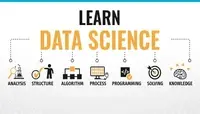Becoming a machine learning or AI engineer can be a complex field of study to navigate.
Typical responsibilities of a machine learning or AI engineer include:
- Building AI models from the ground up and understanding model results.
- Developing a data ingestion and data transformation infrastructure.
- Automating infrastructure.
- Converting machine learning models into application program interfaces (APIs).
Here are some important things you need to know that will help direct you on your path to becoming a machine learning or AI engineer:
- Machine Learning Types: Understand the difference between the types of machine learning, including supervised, unsupervised, and reinforcement learning.
- Supervised learning enables machines to classify and predict objects or situations based on labeled data.
- Unsupervised learning algorithms are not given any labels for the training data.
- Reinforcement learning is where an agent learns to behave in an environment by performing actions and seeing the results.
Learning Path
Take these 7 steps to help guide your AI engineering or machine learning education:
- Learn mathematics skills, like probability and statistics, linear algebra, and calculus.
- Develop programming skills, like Python, R, or Java.
- Study engineering skills, like cleaning, parsing, correcting, and consolidating.
- Learn how to extract, transform, and load data.
- Obtain knowledge of database management software, such as MySQL or NoSQL.
- Learn popular machine learning algorithms, like linear regression, logistic regression, decision tree, support vector, random forest, and K nearest neighbour.
- Understand machine learning frameworks because they remove the complexities of machine learning and make it available for large groups of developers. Machine learning frameworks include Tensorflow, Pytorch, Keras, and Caffe.
Other Skills and Helpful Knowledge
- Communication Skills: Modern machine learning engineers work alongside business units and teams, and they must be able to explain their findings in terms that non-tech people can understand.
- Computer Science: It’s important to learn computer science fundamentals, including data structures such as stacks and queues, and computer architectures like memory, bandwidth, and deadlocks.
Becoming a machine learning or AI engineer is a rewarding career. When you finally get your knowledge base together, you can look further into specific industries, technologies, or job roles that will help you fine-tune your specializations in a career.
You can also help land a career by studying popular machine learning interview questions that help you prepare for a future of work.
To learn more about becoming a machine learning or AI engineer, be sure to subscribe to this newsletter and visit the Intelligent World.






